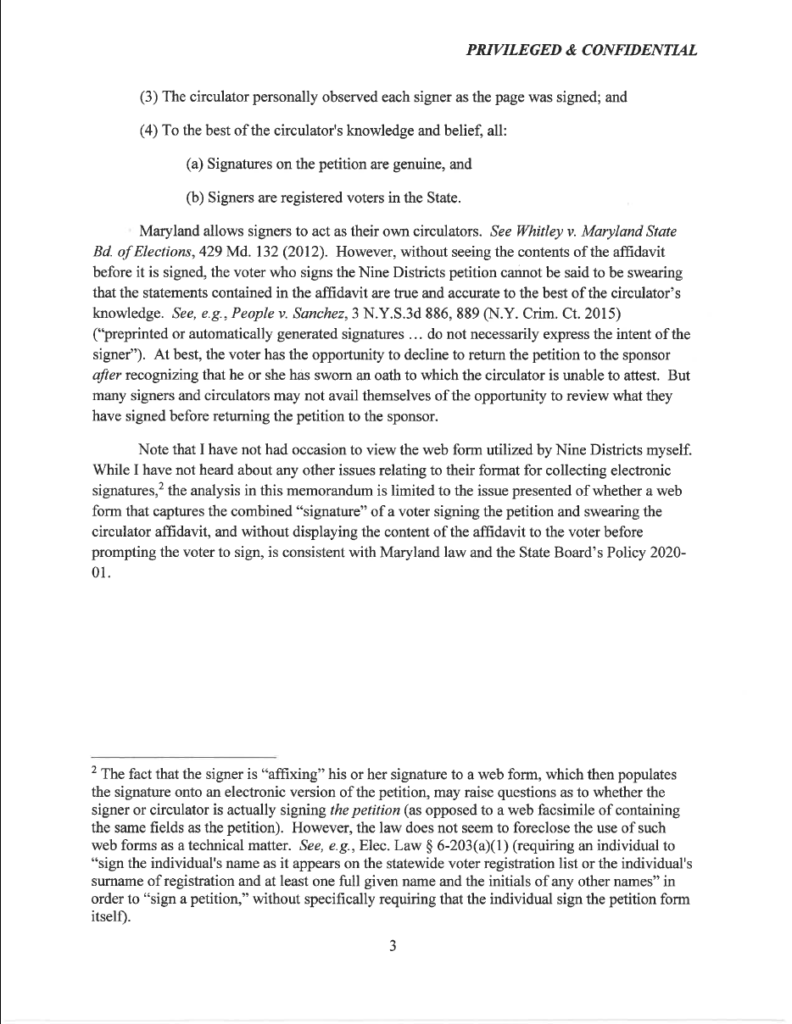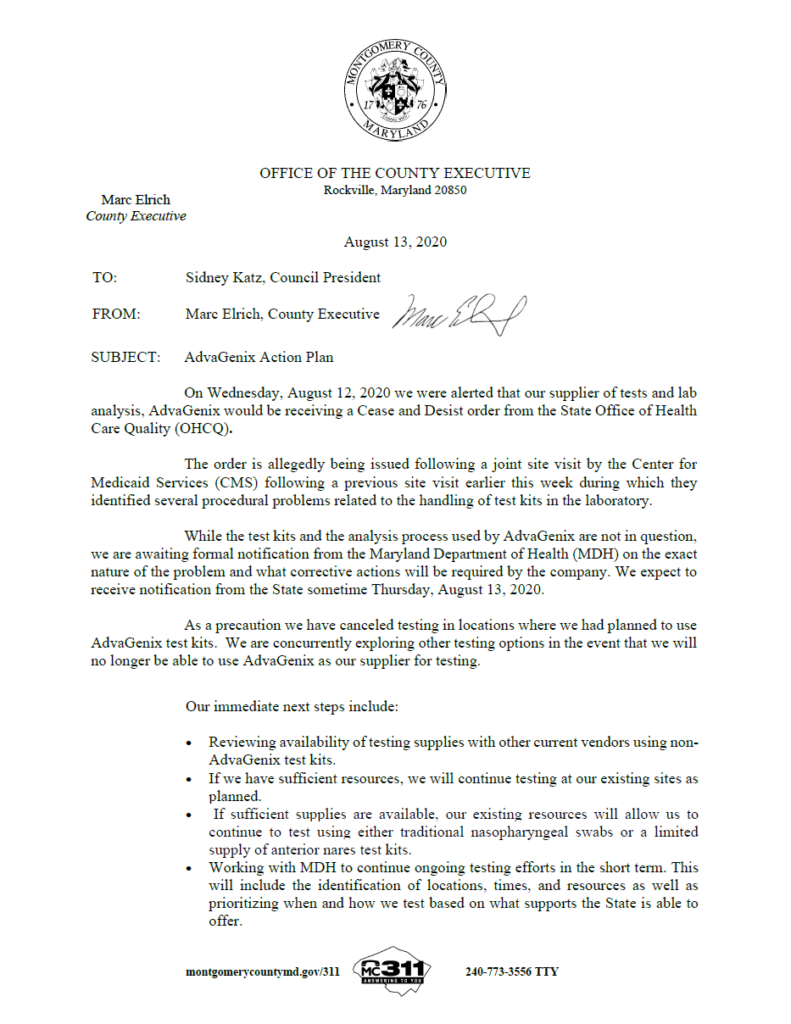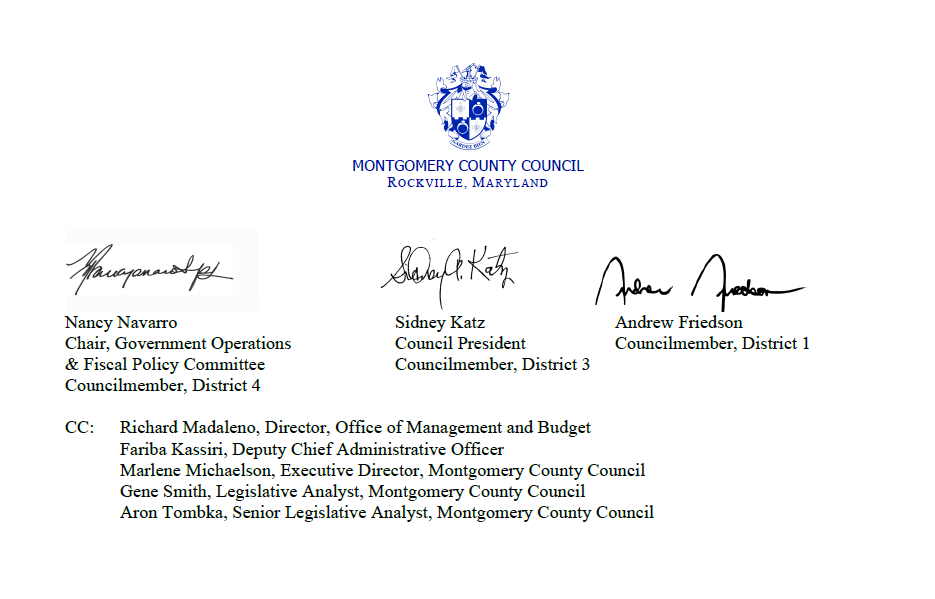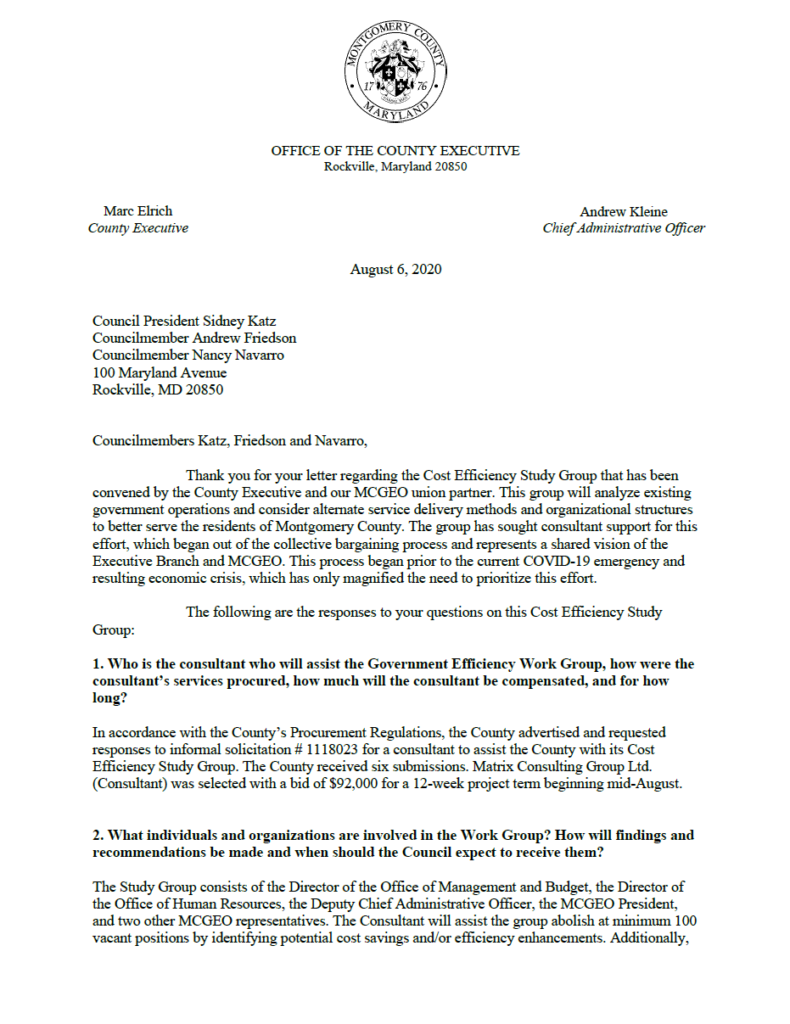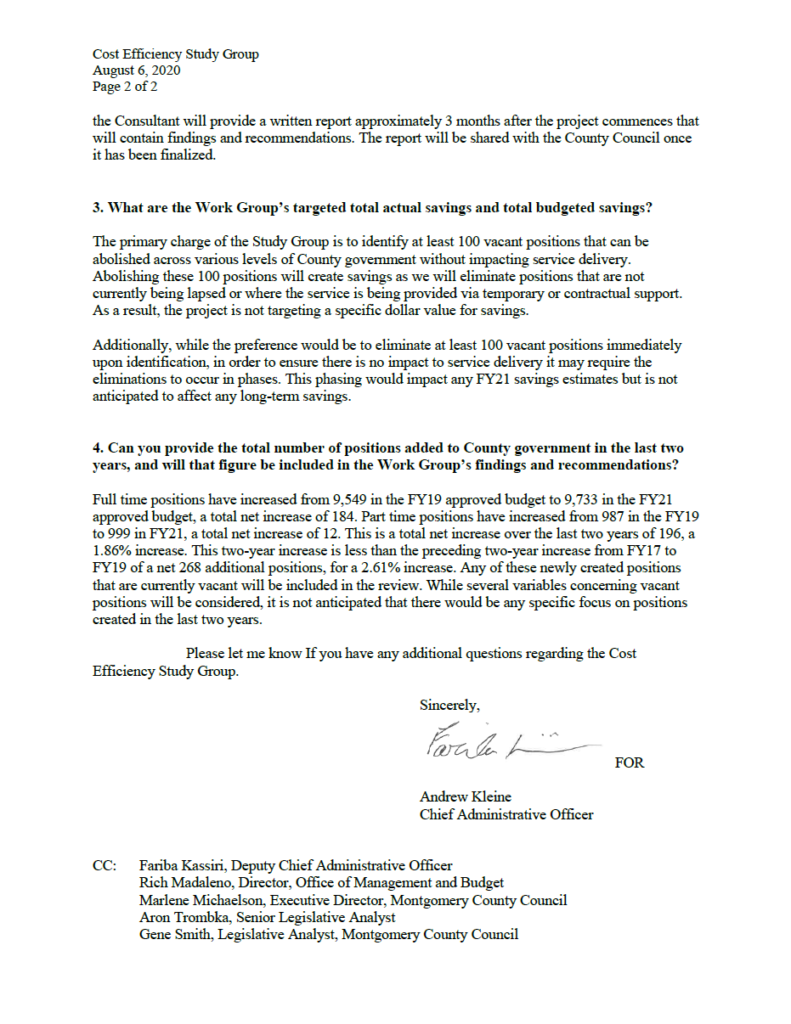By Adam Pagnucco.
A June opinion from the office of Maryland’s Attorney General indicates that the Nine Districts for MoCo group may have collected some electronic signatures in a manner that was inconsistent with state law and policy established by the State Board of Elections. Whether this impacts the group’s ability to qualify for the ballot remains to be seen.
Maryland law requires that both petition signers and petition circulators sign a ballot question or charter amendment petition. The signer and the circulator may be the same person. The circulator must sign and date an affidavit that states:
Under penalties of perjury, I swear (or affirm) that: (a) I was at least 18 years old when each signature was obtained; (b) the information given to the left identifying me is true and correct; (c) I personally observed each signer as he or she signed this page; and (d) to the best of my knowledge and belief: (i) all signatures on this page are genuine; and (ii) all signers are registered voters of Maryland.
The circulator must also provide his or her name, residence address and telephone number.
On April 22, the State Board of Elections established a temporary policy (SBE Policy 2020-01) allowing electronic signatures on petitions due to the COVID-19 crisis. The policy states: “For an electronic signature to be valid under this policy, in addition to meeting the requirements of Elec. Law § 1-101(y), the signature must reflect an affirmative action by the signer to type or electronically sign or affix the signer’s name on to the signature page.”
The key phrase here is “affirmative action.”
According to Assistant Attorney General Andrea W. Trento, who was asked to provide an opinion on Nine Districts’ system for gathering electronic signatures, the group’s website through June asked voters to “fill in [their] information by typing the info to populate the signature page… It then ‘asks if you want to accept,’ and if the voter does so, it ‘states that you successfully signed the petition.’… The signature and accompanying information are then populated both into the signature field and the circulator field. The voter does not see the circulator oath before signing, nor does the voter take any affirmative action to sign the circulator affidavit as distinct from the petition.”
Accordingly, Trento opined that “these features are clearly inconsistent with Maryland law” and “the format as described to me is not consistent with Policy 2020-01.” Trento’s opinion was shared with the Nine Districts group on June 8.
Does this mean that Nine Districts’ petition will be thrown out? Not necessarily. The Attorney General’s opinion states that the group “may have changed its web form” after discussions with the county board of elections. The group also gathered MANY physical signatures prior to the onset of COVID-19. But these are the kinds of technicalities that result in petitions being rejected. Even Robin Ficker, the undisputed master of charter amendment signature gathering, had a term limits petition thrown out in 2010. (Six years later, Ficker got term limits on the ballot and passed it with 70% of the vote.)
Trento’s opinion is reprinted below. (The home address for Nine Districts’ chairwoman has been redacted.)



